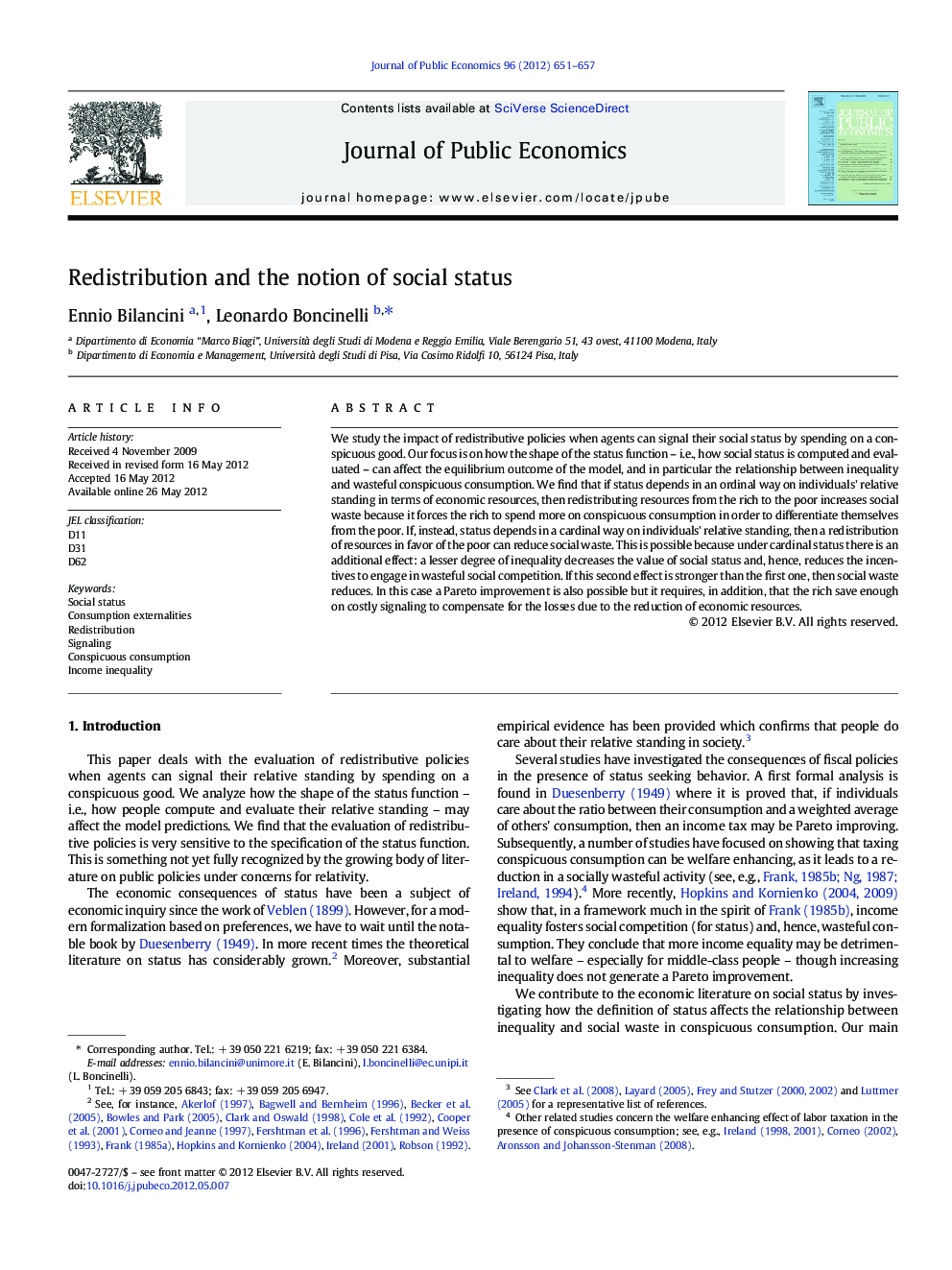| Article ID | Journal | Published Year | Pages | File Type |
|---|---|---|---|---|
| 968956 | Journal of Public Economics | 2012 | 7 Pages |
We study the impact of redistributive policies when agents can signal their social status by spending on a conspicuous good. Our focus is on how the shape of the status function – i.e., how social status is computed and evaluated – can affect the equilibrium outcome of the model, and in particular the relationship between inequality and wasteful conspicuous consumption. We find that if status depends in an ordinal way on individuals' relative standing in terms of economic resources, then redistributing resources from the rich to the poor increases social waste because it forces the rich to spend more on conspicuous consumption in order to differentiate themselves from the poor. If, instead, status depends in a cardinal way on individuals' relative standing, then a redistribution of resources in favor of the poor can reduce social waste. This is possible because under cardinal status there is an additional effect: a lesser degree of inequality decreases the value of social status and, hence, reduces the incentives to engage in wasteful social competition. If this second effect is stronger than the first one, then social waste reduces. In this case a Pareto improvement is also possible but it requires, in addition, that the rich save enough on costly signaling to compensate for the losses due to the reduction of economic resources.
► Concerns for social status can be ordinal or cardinal. ► Social status affects the relationship between inequality and conspicuous consumption. ► When status is ordinal, more equality increases conspicuous consumption. ► Cardinal status allows for more equality to reduce conspicuous consumption. ► Cardinal status allows for more equality to be Pareto improving.
